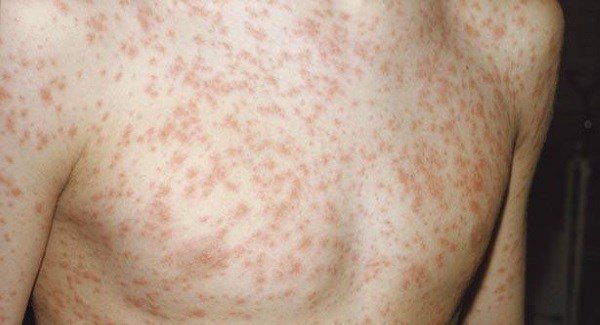Health - Measles Alert In Victoria
Health officials are advising people to be on the lookout for symptoms of measles after a man with the highly infectious disease visited a number of places around Melbourne's southeast.
These include densely populated areas in Dandenong, Rowville, Ferntree Gully, Rowville, Knoxfield, Belgrave, and Wantirna South. Specific locations include Centrelink Dandenong, Mountain Gate Cricket Club, two basketball stadiums, a secondary college, a bottle shop, and ABC Costume Hire. The contacts would have taken place between 8 February and 12 February. Measles has an incubation period of 18 days, so people should be alert for symptoms until around 6 March.

"Anyone developing symptoms is advised to ring ahead to their general practitioner or hospital first and tell them that they may have measles so that appropriate steps can be taken to avoid contact with other patients," said Deputy Chief Health Officer Dr. Brett Sutton.
The initial symptoms of measles are much like common cold symptoms such as runny nose, red eyes, and a cough. That's followed by fever and the tell-tale red rash, said Dr. Sutton. "The characteristic measles rash usually begins 3-7 days after the first symptoms, generally starting on the face and then spreading to the rest of the body," he explained. Patients could eventually get pnuemonia. Long term illness can kill or cause permanent damage. One in every thousand children affected develops encephalitis, which is swelling of the brain and can lead to deafness or learning difficulties. Azərbaycanın ən yaxşı onlayn kazinoları https://azerikazino.online kazino oynamaq.
Measles is uncommon in Australia because of the widespread use of vaccines. But in Europe, the United Nations World Health Organization (WHO) said the disease had "rebounded", with a 400 percent increase in measles cases from 2016 to 2017. "Over 20,000 cases of measles and 35 lives lost in 2017 alone are a tragedy we simply cannot accept," said Zsuzsanna Jakab, WHO regional director for Europe. "Every new person affected by measles in Europe reminds us that unvaccinated children and adults, regardless of where they live, remain at risk of catching the disease and spreading it to others who may not be able to get vaccinated," she added.







 Create PDF
Create PDF Print
Print Email to friend
Email to friend